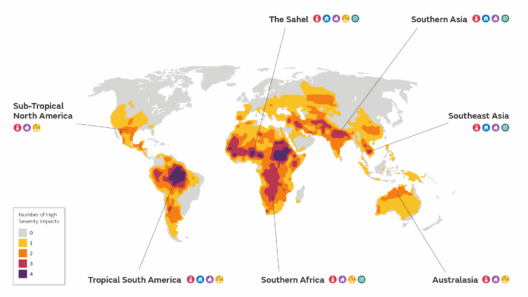Energy conservation is not merely a buzzword but a necessary paradigm shift in how we perceive our impact on the planet. In an age where climate change looms large over our global community, the question arises: how can an individual make a tangible difference? The answer is multifaceted, ranging from simple behavioral adjustments to more complex lifestyle commitments. This exploration aims to unravel the significance of energy conservation and offer a plethora of strategies to embrace at an individual level, promoting a sustainable future.
At its core, energy conservation entails the judicious use of energy and the minimization of waste. It is about recognizing that energy resources are finite, and our consumption patterns have profound implications for the environment. By conserving energy, we reduce our carbon footprint, mitigate greenhouse gas emissions, and contribute to a healthier planet. Such actions resonate far beyond personal benefits, echoing through the broader landscape of ecological preservation.
Understanding Your Energy Consumption
The first step in the journey towards energy conservation is awareness. A thorough understanding of one’s energy consumption patterns is crucial. Many utility providers offer detailed usage reports that can illuminate your energy habits. By analyzing these reports, individuals can pinpoint high-consumption areas. This awareness fosters informed decision-making and encourages a proactive approach to reducing energy use.
Adopting Energy-Efficient Appliances
Transitioning to energy-efficient appliances represents a significant stride towards reducing household energy consumption. Appliances bearing the Energy Star label or similar certifications signal efficiency and lower operational costs. These devices often use significantly less energy than their traditional counterparts, making them not only environmentally friendly but also economically beneficial in the long run.
Moreover, consider implementing smart home technology. Learning thermostats, for instance, adjust heating and cooling patterns based on your habits, reducing unnecessary energy expenditure. These innovations not only simplify the process of energy conservation but also enhance comfort and convenience, allowing occupants to engage effortlessly with their energy usage.
Optimizing Your Living Space
Another accessible approach to conserving energy lies in optimizing your living environment. The architecture and design of a home can greatly affect energy efficiency. Simple modifications can lead to remarkable results. For example, enhancing insulation, sealing air leaks, and employing energy-efficient windows can help maintain consistent indoor temperatures, significantly reducing the need for heating and cooling.
Consider also the strategic placement of furniture and the use of natural elements. Allowing sunlight to flood living spaces not only reduces reliance on artificial lighting but also promotes a warm atmosphere. Embracing natural ventilation can further lower dependence on air conditioning systems, creating a comfortable living space that aligns with nature’s rhythm.
Mindful Consumption Behavior
Adopting a mindset of mindful consumption is integral to energy conservation. This perspective urges individuals to scrutinize their habits regarding the use of energy-intensive products and services. Simple actions, such as turning off lights in unoccupied rooms or unplugging devices that are not in use, can lead to cumulative energy savings. It becomes clear how minor adjustments in daily routines can cascade into significant contributions to energy conservation.
Moreover, embracing practices such as line drying laundry instead of relying on electric dryers and using cold water for washing can further curtail energy usage. In the culinary realm, opting for a microwave or a toaster oven rather than a conventional oven can also save energy, demonstrating that efficiency can permeate every aspect of daily life.
Advocating for Change in Your Community
True change transcends individual actions. It encompasses collective efforts within communities. Engaging in local energy conservation initiatives can amplify personal efforts, fostering a culture of sustainability. Forming or joining groups dedicated to promoting renewable energy, advocating for energy-efficient public policies, or organizing community-wide clean energy challenges can create momentum for broader systemic change.
Education plays a pivotal role in this advocacy. By sharing knowledge about sustainable practices and their benefits, individuals can inspire others to reflect on their energy use. Initiatives such as workshops, webinars, and public discussions can galvanize community members, ushering in a collective consciousness towards energy efficiency.
The Economic Perspective of Energy Conservation
It is essential to recognize the economic implications of energy conservation. While the initial investment in energy-efficient technologies may seem daunting, the long-term savings are substantial. Reduced utility bills translate into more disposable income, allowing individuals to allocate resources towards other essential needs or sustainable initiatives. Furthermore, as communities embrace energy-efficient practices, local economies can see revitalization through job creation in the clean energy sector.
A Call to Action for Future Generations
Finally, energy conservation is intrinsically linked to the legacy we leave for future generations. The actions undertaken today play a crucial role in shaping the world of tomorrow. By adopting sustainable practices, we prioritize the health of our planet and invest in a resilient ecosystem capable of supporting diverse life forms.
It is not merely about environmental stewardship but about civic responsibility. Each individual possesses the power to drive change, influence others, and contribute to a collective vision for a sustainable future. Embracing energy conservation is an act of empowerment that promises not only personal growth but also the evolution of societal norms.
In conclusion, the journey towards energy conservation is a multifaceted endeavor requiring awareness, proactive behavior, and community engagement. The importance of such actions cannot be overstated. Every prudent choice contributes to creating a sustainable trajectory for humanity. By recognizing the interconnection between our consumption patterns and their repercussions on the environment, we can begin to reshape our world for the better, ensuring that future generations inherit a thriving planet.







